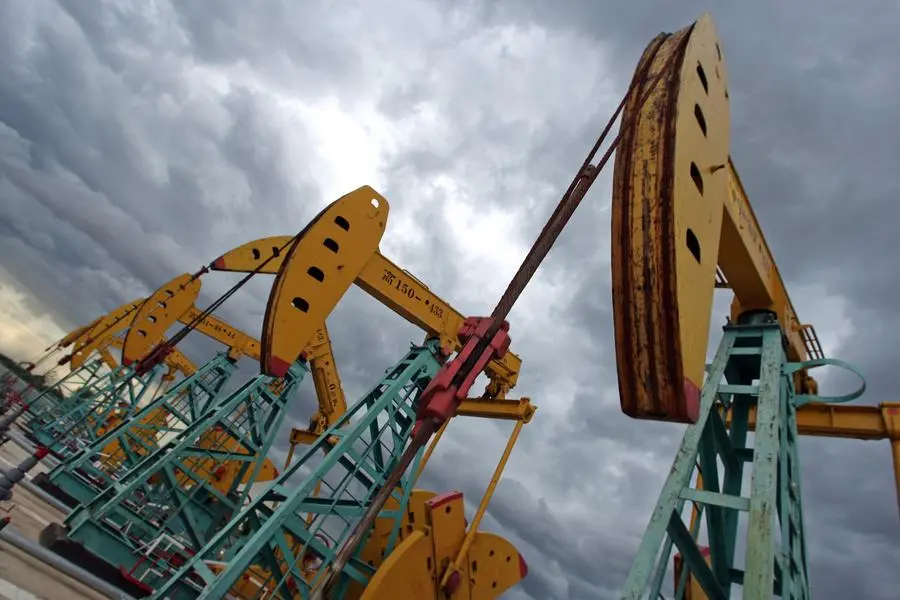PHOTO
South Sudan has given the strongest signal yet of its intention to claim the disputed border region of Abyei as part of its territory, based on the results of a controversial referendum held more than 11 years ago, the outcome of which it initially rejected.
First Vice President Riek Machar officially received the referendum report on January 4 from a team from Abyei Area Administration led by Chief Administrator Dr Chol Deng Alak and promised to forward it to the executive and parliament for adoption, a policy shift from October 2013, when Juba rejected the near-unanimous decision by one of the two main ethnic communities in Abyei to be in South Sudan.
Dr Machar said he would first forward the report—in which the Ngok Dinka ethnic group voted 99 percent to belong to the South — to the Ministry of Justice and Constitutional Affairs, from where it would be sent as a memo to the Governance Cluster, the Cabinet, and finally to the National Legislative Assembly for deliberation and endorsement.
The Abyei Administrative Assembly officially endorsed the referendum results on December 27, 2024.
Abyei, an oil-rich region that straddling South Sudan and Sudan, was part of the unfinished business when South Sudan seceded from Sudan in 2011. Abyei is also considered to have fertile soil and is an important trade centre and route between South Sudan and Sudan.
But its political future has always been incendiary, and leaders have preferred to sweep it under the carpet.
In 2013, the Ngok Dinka voted overwhelmingly to join South Sudan in an unofficial referendum. But the Arabic-speaking nomadic Misseriya boycotted the referendum and insisted on remaining in Sudan.
When South Sudan, then Southern Sudan, voted in the independence referendum in 2011, the original idea was for the Abyei referendum to run concurrently. But the region’s decision delayed and when the unofficial referendum happened, the African Union warned that it could threaten peace between the South and the North.
The two countries have failed to agree on who is eligible to vote in the referendum, and the current political and security chaos in Sudan has not helped.
The decision by Dr Machar to push the Abyei report has been criticised by some observers, with fears that it could escalate tensions with Khartoum.
James Morgan, a former South Sudan foreign affairs minister, currently the Special Envoy to the Great Lakes region, said that it is difficult politically and diplomatically for South Sudan to unilaterally decide on the status of Abyei.
According to the 2005 Comprehensive Peace Agreement (CPA), the oil-rich region was to hold a simultaneous referendum with South Sudan in January 2011 but it did not happen.
Akol Miyen Kuol, a political commentator, said that South Sudan has a moral obligation to recognise the outcome of the 2013 referendum “because the members of the Ngok Dinka of Abyei fought alongside SPLM to free themselves from the Khartoum government and they have a right to self-determination.”Mr Kuol was referring to the South Sudan ruling party, which began as a rebel movement, the Sudan People’s Liberation Movement, led by the late John Garang.
Mr Kuol said that for 20 years, Khartoum has been reluctant to allow the people of Abyei to conduct a referendum according to the CPA. And now with war ongoing in the North, he argues that Sudan will be unable to deal with the issue and the future remains uncertain.
Khartoum has always insisted on the participation of the Misseriya, who come to north Abyei to graze their cattle and for water in River Kiir during the dry seasons, but Juba maintains the Misseriya are not permanent residents of Abyei.
Abyei is desirable to both countries economically and for critical border stability.
Malual Bol Kiir, a research fellow at the Institute for Strategic and Policy Studies and founder of the African Youth Action Network, said the endorsement of the 2013 referendum should have happened a long time ago, considering its significance to the people of Abyei and South Sudan as a whole.
He said that Juba’s failure to recognise the outcome of the 2013 plebiscite for almost 12 years has led to a feeling of “statelessness,” leading to perennial conflicts among the communities that live in the region due to the lack of clear-cut international borders.“This is a defining moment for the government to stand with the people of Abyei and fulfil their longstanding aspirations to unite with South Sudan. Let the government act now to cement Abyei’s identity and strengthen national unity,” Mr Kiir said.
Abyei has borne the brunt of the 20-month conflict in Sudan, with the flow of the displaced heightening the existing tensions in the region between the Ngok Dinka and the Twic communities, and the Dinka and the Misseriya from Sudan.
Yet, a unilateral declaration could be problematic for both sides. In July 2009, the Abyei Tribunal, sitting at The Hague, issued a compromise ruling in which it confirmed that the nine chiefdoms of the Ngok Dinka belong to Southern Sudan but also ensured that major oilfields are assigned to the North.“Although Sudan is suffering political instability at the moment, it is better and preferable for the government of South Sudan to undertake legal proceedings and process on the status of Abyei with the full consensus of both governments of South Sudan and Sudan,” argued Edmund Yakani, executive director of the Community Empowerment for Progress Organisation, an NGO in South Sudan.
© Copyright 2022 Nation Media Group. All Rights Reserved. Provided by SyndiGate Media Inc. (Syndigate.info).




















